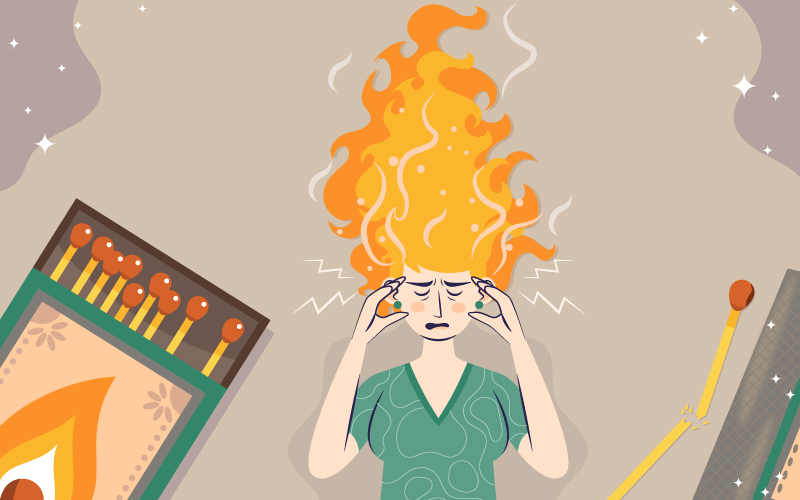Gaslighting is a subtle form of psychological manipulation that can leave you feeling confused, doubting your own perceptions, and questioning their reality. It’s a tactic often employed by manipulative individuals to gain power and control over others.
What Do You Mean by Gaslighting Someone?
Gaslighting is a form of emotional abuse where the perpetrator seeks to sow seeds of doubt in the victim’s mind, making them question their memories, perceptions, and sanity. The term originates from a play and subsequent film titled “Gas Light,” in which a husband manipulates his wife into believing she’s going insane by dimming the gas lights and then denying that they are flickering when she notices.
Gaslighting can take many forms, ranging from outright denial of events to subtle undermining of the victim’s confidence. Its goal is to make the victim question their own reality, thereby making them more susceptible to the manipulator’s control.
What Are the Types of Gaslighting?
Denial and Untruths
The gaslighter may flatly deny events or statements that the victim knows to be true. They might insist that the victim is imagining things or making up stories.
Minimization
Gaslighters often downplay the significance of the victim’s thoughts, feelings, or experiences. They might dismiss the victim’s concerns as overreactions or label them as irrational.
Projection
Gaslighters may project their own flaws, insecurities, or wrongdoing onto the victim. They accuse the victim of the very behaviors they themselves are engaging in, deflecting attention away from their own actions.
Diversion and Distraction
Gaslighters may change the subject or deflect blame when confronted with their behavior. They might redirect the conversation or bring up unrelated issues to confuse or invalidate the victim.
Withholding Information
Gaslighters often withhold information or selectively present facts to manipulate the victim’s perception of reality. They might conveniently forget important details or distort the truth to serve their own agenda.
5 Signs They Are Gaslighting You
1. Constant Contradictions
Gaslighters frequently contradict themselves or deny previous statements, causing confusion and making it difficult for you to trust your own memory.
2. Undermining Your Confidence
Gaslighters chip away at your self-esteem by criticizing your abilities, appearance, or intelligence. They may subtly belittle you or make you feel inadequate.
3. Blaming You for Their Behavior
Gaslighters will often shift the blame onto you or any other victim, making you feel responsible for the gaslighter’s actions or emotions. They may accuse you of provoking them or causing problems in the relationship.
4. Isolating You from Support
Gaslighters may try to isolate you from friends, family, or other sources of support. They may sow seeds of doubt about the intentions of others or discourage you from seeking help.
5. Creating Confusion and Doubt
Gaslighters thrive on creating confusion and doubt in your mind. They may distort reality, manipulate facts, or use gaslighting techniques to make you question your own sanity.
How to Stop Getting Gaslighted?
Trust Your Instincts
If something doesn’t feel right, trust your instincts. Don’t dismiss your feelings or allow yourself to be gaslit into doubting them.
Seek Validation
Reach out to trusted friends, family members, or a therapist for validation and support. Surround yourself with people who believe and affirm your experiences.
Set Boundaries
Establish clear boundaries with the gaslighter and stick to them. Refuse to engage in arguments or accept blame for things that are not your fault.
Document Your Experiences
Keep a journal or record of incidents where you feel gaslit. Having concrete evidence can help validate your experiences and provide clarity when confronting the gaslighter.
Consider Professional Help
If gaslighting is taking a toll on your mental health or well-being, consider seeking help from a therapist or counselor. A trained professional can provide guidance and support as you navigate the effects of gaslighting.
Final Thoughts
Gaslighting is a harmful form of psychological manipulation that can have lasting effects on your mental health and well-being. Recognizing the signs of gaslighting is the first step toward reclaiming your power and breaking free from the cycle of manipulation.
By trusting your instincts, seeking validation and support, setting boundaries, and considering professional help, you can take back control of your reality and protect yourself from further harm. Remember, you deserve to be treated with respect and kindness, and gaslighting is never acceptable behavior.

Leave a Reply
You must be logged in to post a comment.